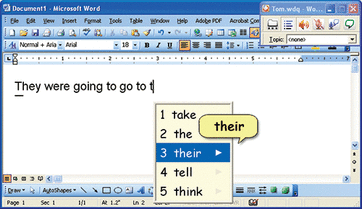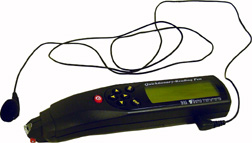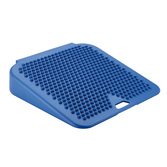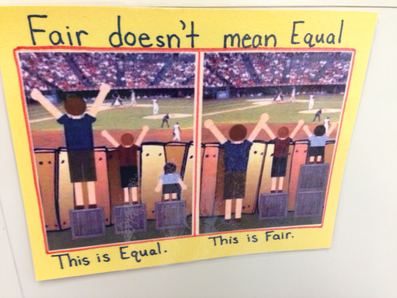Traditionally, accommodations, assistive tech, and sensory tools were in the realm of special education. For the sake of clarity, as terminology may differ from place to place, I'll give a brief definition of each along with examples:
| Accommodations - Accommodations are designed to help students meet the same curricular outcomes as their peers. They may require additional assistance to do so due a number of factors, such as difficulties with fine motor skills, learning disabilities, difficulties with memory, etc. Accommodations can come in the form of tools (e.g. calculators, dark lined paper, multiplication tables, pencil grips, etc.), or processes (e.g. giving students extra time to complete tasks, reducing the number of questions, reading questions aloud to students, etc.). |
In a universally designed learning environment, accommodations, assistive tech, and sensory tools are available to anyone who needs it. Unfortunately, some school systems require diagnoses and documentation in order to provide these things to students. In systems such as these, funding for assistive technology and sensory tools are withheld until diagnoses are given, and policies forbid the use of accommodations in the name of 'fairness.'
I would argue that fairness does not mean that we treat everyone exactly the same. Rather, fairness means that we give all students the tools they need to meet their fullest potential.
One benefit to getting out of the mindset that we must have diagnoses and documentation to justify the need for additional supports is that we can destigmatize these supports. Students may be hesitant to use fidgets and wedge seats, or may refuse to take extra time to complete tasks if they feel that these supports are only available to those who have special needs. However, if these supports are made available to everyone, then more students would be willing to take advantage of them.
And who couldn't benefit from extra help, or from taking advantage of things that make our lives easier? Adults do it all of the time. This may explain why there's an app for practically everything, or why many people use the escalator instead of the stairs, even though they do not have difficulties with mobility. Why deny these conveniences to our students?
For some students, accommodations may be just convenient, but for other students they are essential. In a universally designed learning environment, such supports are made available to everyone, not only to destigmatize the use of accommodations for those who need them, but also to increase everyone's potential for success.







